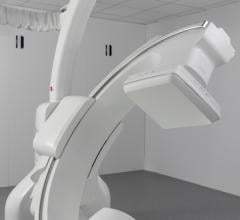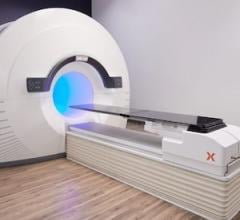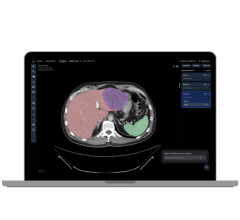May 6, 2016 — The Society for Cardiovascular Angiography and Interventions (SCAI) has released an expert consensus statement providing cardiologists, oncologists and internal medicine physicians guidance for treating patients facing concomitant cardiovascular disease and cancer. The document, “SCAI Expert Consensus Statement: Evaluation, Management, and Special Considerations of Cardio- Oncology Patients in the Cardiac Catherization Laboratory,” was released in Catheterization and Cardiovascular Interventions (CCI), and is endorsed by the Cardiological Society of India (CSI) and Sociedad Latino Americana de Cardiologia Intervencionista (SOLACI). The paper aims to increase the competency of cardiovascular professionals providing care to cancer patients.
Advances in cancer therapy have resulted in steady decline in cancer-related mortality since the 1990s. According to the Centers for Disease Control and Prevention, there are approximately 14.5 million cancer survivors in the United States, and this number is expected to increase to 20 million in 2020. In view of these trends, the need for invasive evaluation and management in the cardiac catheterization laboratory for such patients has increased.
“Little data exists as cancer patients have been excluded from national percutaneous coronary interventions (PCI) registries and from most randomized trials involving PCI,” said Cezar A. Iliescu, M.D., FSCAI, lead author of the document and director of the Cardiac Catheterization Laboratory at MD Anderson Cancer Center in Houston, Texas. “Therefore, SCAI commissioned a consensus group to define the landscape and provide recommendations based on the available published medical literature and the expertise of operators with accumulated experience in the cardiac catheterization of cancer patients.”
Cancer is associated with a hypercoagulable state, which increases the risk of acute thrombotic events. Cancer therapies can cause significant injury to the vasculature, resulting in angina, acute coronary syndromes, arrhythmias and heart failure, even independently from a direct myocardial effect.
The document highlights the review of the mechanisms of vascular toxicities in cancer patients (radiation- or chemotherapy-induced). It also covers several other aspects of cardiovascular care such as screening and cardio-protection, as well as PCI in patients with thrombocytopenia and anemia, fractional flow reserve, intravascular ultrasound and optical coherence tomography for complex intravascular assessment and deferring stenting, if possible. The paper also includes non-coronary interventional procedures in cancer patients like endomyocardial biopsy and pericardiocentesis, as well as aortic valvuloplasty and transcatheter aortic valve implantation.
Cardio-oncology is expected to have continued growth in the coming years. Several healthcare institutions have founded onco-cardiology/cardio-oncology departments, along with fellowship training programs focusing on the cardiology subspecialty.
For more information: www.onlinelibrary.wiley.com


 February 13, 2026
February 13, 2026 









